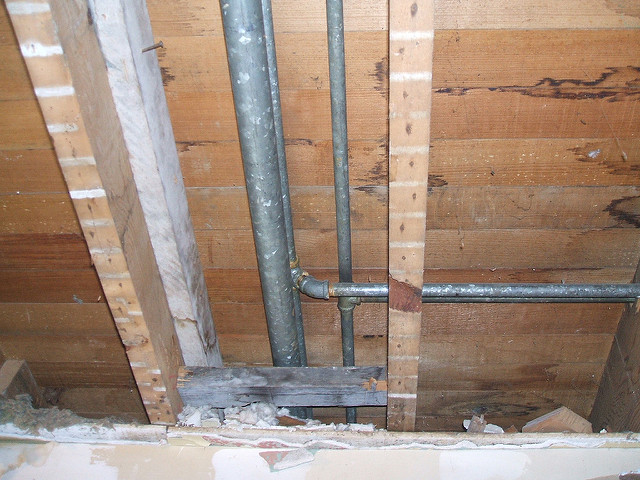6 Ways to Discover Concealed Water Leaks in Your Home
6 Ways to Discover Concealed Water Leaks in Your Home
Blog Article
They are making a few great pointers regarding Finding hidden leaks in general in the article following next.

Early discovery of leaking water lines can alleviate a possible catastrophe. Some little water leakages might not be visible.
1. Analyze the Water Meter
Checking it is a surefire way that helps you find leaks. If it moves, that suggests a fast-moving leak. This means you might have a sluggish leakage that might also be below ground.
2. Check Water Usage
Examine your water bills as well as track your water consumption. As the one paying it, you ought to observe if there are any type of discrepancies. If you find sudden changes, in spite of your intake being the same, it indicates that you have leaks in your plumbing system. Bear in mind, your water costs should drop under the exact same range each month. An unexpected spike in your costs indicates a fast-moving leakage.
A consistent rise every month, also with the very same habits, reveals you have a slow leak that's additionally slowly escalating. Call a plumber to extensively inspect your property, particularly if you really feel a cozy area on your flooring with piping underneath.
3. Do a Food Coloring Examination
When it comes to water intake, 30% originates from bathrooms. Examination to see if they are running appropriately. Drop flecks of food color in the tank and wait 10 mins. There's a leak in between the storage tank and dish if the color in some way infiltrates your bowl throughout that time without flushing.
4. Asses Outside Lines
Do not fail to remember to inspect your outdoor water lines also. Should water leak out of the connection, you have a loose rubber gasket. One tiny leak can lose tons of water and spike your water expense.
5. Analyze the situation and also inspect
Home owners ought to make it a behavior to inspect under the sink counters and also even inside closets for any kind of bad odor or mold growth. These 2 warnings suggest a leak so punctual attention is required. Doing regular examinations, even bi-annually, can conserve you from a significant problem.
A lot more notably, if you understand your house is currently old, maintain a watchful eye on your heating systems, hose pipes, pipes and so on. Look for discolorations and also weakening as a lot of appliances and pipelines have a life expectancy. They will certainly additionally naturally weaken because of tear and use. Do not wait for it to rise if you suspect leaking water lines in your plumbing system. Call a specialist plumber today so you do not wind up with an awful mess in your home.
Early detection of dripping water lines can reduce a possible catastrophe. Some tiny water leakages may not be visible. Examining it is a surefire way that aids you uncover leaks. One little leakage can throw away tons of water and spike your water costs.
If you presume leaking water lines in your plumbing system, do not wait for it to escalate.
WARNING SIGNS OF WATER LEAKAGE BEHIND THE WALL
PERSISTENT MUSTY ODORS
As water slowly drips from a leaky pipe inside the wall, flooring and sheetrock stay damp and develop an odor similar to wet cardboard. It generates a musty smell that can help you find hidden leaks.
MOLD IN UNUSUAL AREAS
Mold usually grows in wet areas like kitchens, baths and laundry rooms. If you spot the stuff on walls or baseboards in other rooms of the house, it’s a good indicator of undetected water leaks.
STAINS THAT GROW
When mold thrives around a leaky pipe, it sometimes takes hold on the inside surface of the affected wall. A growing stain on otherwise clean sheetrock is often your sign of a hidden plumbing problem.
PEELING OR BUBBLING WALLPAPER / PAINT
This clue is easy to miss in rooms that don’t get much use. When you see wallpaper separating along seams or paint bubbling or flaking off the wall, blame sheetrock that stays wet because of an undetected leak.
BUCKLED CEILINGS AND STAINED FLOORS
If ceilings or floors in bathrooms, kitchens or laundry areas develop structural problems, don’t rule out constant damp inside the walls. Wet sheetrock can affect adjacent framing, flooring and ceilings.
https://www.servicemasterbyzaba.com/blog/how-to-detect-water-leakage-in-walls/

We hope you enjoyed our piece on Locating water leaks. Thanks a lot for taking the time to browse our piece of content. Sharing is caring. Helping people is fun. Thanks a lot for going through it.
Report this page